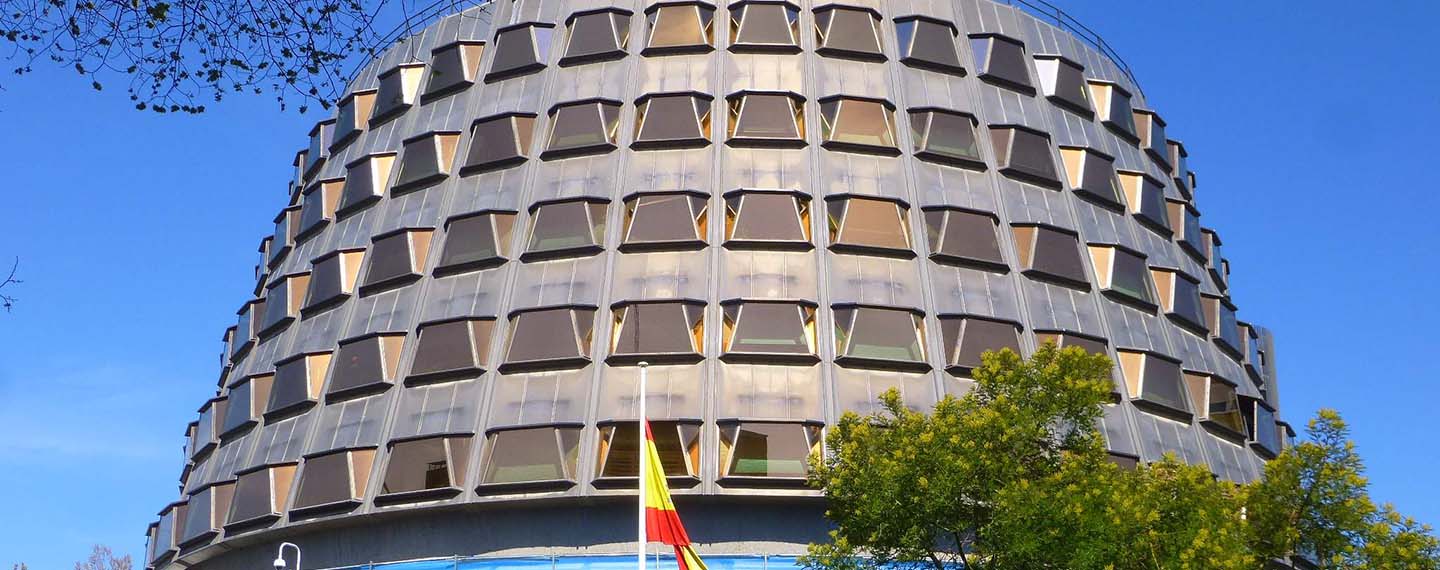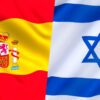Six years ago this month, after organising an unlawful and failed referendum on independence for Catalonia followed by a unilateral declaration of secession, Carles Puigdemont, the region’s Premier, hid in the boot of a car and fled to self-imposed exile in Belgium. Since July’s inconclusive general election, Puigdemont, a fugitive from justice, holds the key as to whether the caretaker Socialist-led minority coalition government of Pedro Sánchez will win another term in office at a parliamentary vote whose date has yet to be announced. If he is not elected by 27 November, there will be a repeat election in January.
Alberto Feijóo, the leader of the conservative Popular Party (PP) which won the most seats (see Figure 1), was given the first stab at forming a government last month. But this was always doomed to failure, as it was clear from the start he would never muster the votes of 176 MPs out of a total of 350, needed in the first vote by absolute majority, or win in the second vote by simple majority if there were abstentions. The PP received 172 votes including 33 lawmakers from the hard-right VOX and two from small parties representing the Canary Islands and Navarra.
Figure 1. Results of general elections, July 2023 and November 2019 (seats, millions of votes and % of total votes)
| July 2023 | November 2019 | |||||
| Seats | Votes | % | Seats | Votes | % | |
| Popular Party (PP) | 137 | 8.0 | 33.1 | 89 | 5.0 | 20.8 |
| Socialists (PSOE) | 121 | 7.7 | 31.7 | 120 | 6.8 | 28.0 |
| VOX | 33 | 3.0 | 12.4 | 52 | 3.6 | 15.1 |
| Sumar | 31 | 3.0 | 12.3 | – | – | – |
| Catalan Republican Left (ERC) | 7 | 0.4 | 1.9 | 13 | 0.9 | 3.6 |
| Together for Catalonia (JxC) | 7 | 0.4 | 1.6 | 8 | 0.5 | 2.2 |
| EH Bildu | 6 | 0.3 | 1.4 | 5 | 0.3 | 1.1 |
| Basque Nationalist Party (PNV) | 5 | 0.3 | 1.1 | 6 | 0.4 | 1.6 |
| Other parties | 3 | 0.3 | 1.3 | 5 | 0.3 | 0.9 |
| Ciudadanos | – | – | – | 10 | 1.6 | 6.8 |
| Unidas Podemos | – | – | – | 35 | 3.1 | 12.9 |
| Voter turnout (%) | 70.4 | 66.2 | ||||
Sánchez’s fate is in the hands of two divided pro Catalan independence parties, Puigdemont’s conservative and maximalist Together for Catalonia (J×Cat) and the more pragmatic Catalan Republican Left (ERC), which heads the Catalan regional government and unlike J×Cat supported the outgoing government. Between them they have 14 MPs in the national parliament (see Figure 2), seven fewer than before. The two parties won 24.5% of the general election votes cast in Catalonia, down from 36.2% in 2019, and 3.4% of the total votes cast throughout Spain.
Their price is an amnesty for several thousand people charged over the referendum, which Feijóo said he was not prepared to pay. It was a PP government in 2017 that, supported by the Socialist opposition, activated article 155 of the constitution and brought Catalonia under direct rule for a limited period. Sánchez also needs the support of three other regional parties that would like independence, and it looks assured: the Basque Nationalist Party, EH Bildu, a left-wing party that is heir to the political wing of ETA, a disbanded Basque separatist terrorist group, and the Galician Nationalist Bloc.
Figure 2. Results of general elections in Catalonia, November 2019 and July 2023 (seats in Congress, millions of votes and % of votes cast in Catalonia)
| July 2023 | November 2019 | |||||
| Seats | Votes | % | Seats | Votes | % | |
| Socialists | 19 | 1.20 | 34.5 | 12 | 0.79 | 20.5 |
| Sumar (1) | 7 | 0.49 | 14.0 | 7 | 0.54 | 14.3 |
| Catalan Republican Left | 7 | 0.46 | 13.2 | 13 | 0.87 | 22.5 |
| Together for Catalonia | 7 | 0.39 | 11.2 | 8 | 0.53 | 13.6 |
| Popular Party | 6 | 0.46 | 13.3 | 2 | 0.28 | 7.4 |
| VOX | 2 | 0.27 | 7.8 | 2 | 0.24 | 6.3 |
| CUP | – | 0.09 | 2.8 | 2 | 0.24 | 6.4 |
The 1978 constitution does not mention the word amnesty, as a result of which lawyers are having a field day with sophisticated arguments over what can or cannot be done. Article 62 bans general pardons (indultos generales), but not individual ones which the government issued in 2021 for nine Catalan independence leaders jailed for their involvement in the referendum. They were released from prison but remain banned from holding public office for a certain period of time.
The constitution, however, allows the King ‘to exercise the right of grace in accordance with the law’, suggesting that an amnesty could be granted if parliament approves a law and it is worded in such a way that it accords with the constitution’s basic principles and rights. Pardons are the prerogative of the government and an amnesty the responsibility of parliament. But since general pardons are not allowed, this means a broad amnesty might also not be permitted, say some legal experts.
An amnesty is more generous than a pardon, because it is usually designed to remove ex post facto the criminality of the acts committed. On the other hand, as the referendum’s main leaders have been individually pardoned, except Puigdemont, it could be seen as reasonable to grant a pardon/amnesty for those who played minor roles.
If an amnesty is not possible, argue jurists who see no impediment, then the Constitutional Court should have retroactively repealed the limited amnesty in 1976 and the broader one in 1977, which released political prisoners after the death of General Franco and guaranteed impunity for those who participated in crimes during the Civil War and the dictatorship, including 1,232 jailed ETA members. This smoothed the path to reconciliation and democracy. The Court did not do so, however, and, furthermore, a law in 1984 added an article to the October 1977 amnesty law stating that its effects are ‘indefeasible’. Other lawyers believe an amnesty in return for political support would violate the principle of the separation of powers and the principle of equality before the law.
The term amnesty was not specifically included in the 1978 constitution because the seven politicians who drafted it (representing a wide spectrum of parties) felt this was inadmissible, given that ETA continued killing after the 1977 amnesty (786 assassinations until 2011 when ETA renounced the use of arms, compared to 43 during the Franco regime).
Politically, as opposed to the strictly legal standpoint, the idea of an amnesty has provoked a heated debate in the media and among the public on not just the pros and cons of an amnesty but what to do about the Catalan problem. It has been opposed in mass protests and by some leading and outspoken Socialist party members, including Felipe González, the Prime Minister between 1982 and 1996. A poll by 40dB last month showed 30% of respondents in favour of a deal enabling a new Sánchez government and 48% in favour of a repeat election. A tight lid is being kept on the negotiations.
While the state pardoned the jailed separatists, an amnesty without some kind of quid pro quo (ideally, an irrevocable renunciation of unilaterally seeking independence) would open the door to another referendum, and would probably be interpreted as a sign of the government’s weakness. This would be divisive and not reconciliatory, which is one of the main purposes of an amnesty. Sánchez sees an amnesty as further reducing tensions with Catalonia.
Support for an independent Catalonia as one of four options is at 33%, down from 40% in October 2017 when the referendum was held, according to the Catalan government’s latest survey by the Centre d’Estudis d’Opinió (see Figure 3). Turnout at this year’s National Day of Catalonia on 11 September, known as La Diada, was relatively low compared with past ones. Other issues such as the impact of the pandemic, higher mortgages, the lack of affordable housing and unemployment have become more immediate and pressing concerns among Catalans.
Figure 3. Preferences for the relation between Catalonia and Spain, 2015-23 (% of respondents)
| Jun 2015 | Oct 2015 | Jun 2016 | Oct 2017 | Oct 2018 | Mar 2019 | Feb 2020 | Jun 2022 | Mar 2023 | Jun 2023 | |
|---|---|---|---|---|---|---|---|---|---|---|
| A region within Spain | 3 | 4 | 4 | 5 | 6 | 6 | 7 | 8 | 6 | 7 |
| A state within federal Spain | 26 | 22 | 21 | 22 | 22 | 21 | 24 | 21 | 23 | 23 |
| An autonomous region | 24 | 24 | 26 | 27 | 24 | 26 | 27 | 30 | 32 | 31 |
| An independent state | 39 | 41 | 42 | 40 | 39 | 40 | 35 | 34 | 33 | 33 |
Far from relenting, Puigdemont, but less so Pere Aragonès, the Catalan Premier, has vowed to continue the unilateral push for secession, though a referendum is not a condition for supporting Sánchez. A referendum is a red line that Sánchez says he will not cross and knows he cannot cross, while the amnesty is being taken on board by him and Yolanda Díaz, leader of the hard-left Sumar (Unite) which will repeat its alliance with the Socialists, as a matter of political expediency.
Plenty of amnesties have been granted around the world, though none, as far as one can see, in return for a government being able to continue in office. There have been amnesties in corruption cases, amnesties for migrants and amnesties for national reconciliation and transitions to democracy. There was one in Spain in April 1934 which liberated the monarchist rebels of the Sanjurjada, the failed coup of August 1932, and the anarchist insurgents of December 1933. This was followed by another amnesty in February 1936 after the Popular Front, an alliance of left wing parties, won the general election and the government led by Manuel Azaña freed thousands of prisoners, most of them miners who had participated in the October 1934 uprising in Asturias against an elected right-wing government, but also including Lluis Companys, a predecessor of Puigdemont as Premier of Catalonia before and during the 1936-39 Civil War, who was sentenced to 30 years in prison for proclaiming in 1934 a ‘Catalan state within the Spanish Federal Republic’. It lasted 10 hours.
Companys went into exile in France after the Civil War, and in 1940 was arrested and extradited to Barcelona by Nazi authorities where he was executed by a firing squad of Civil Guards from the Civil War’s winning side. The anniversary of his death is commemorated every year and is a rallying point for secessionists. ‘Even if we lose, Catalonia will win because we need martyrs who will tomorrow assure definitive victory’,[1] Companys declared. Puigdemont sees himself as a martyr.
The last word on whether an amnesty complies with the constitution lies with the Constitutional Court, seven of whose 11 members are ‘progressive’ as opposed to ‘conservative’ (colour coded in newspapers) and whose opinion will be sought if the PP and the hard-right VOX appeal. The Court has a history of taking years to rule on hot potato issues. This saga is far from over.
[1] Gerald Brenan (2008), The Spanish Labyrinth, Cambridge University Press, p.282; and cited in Michael Reid (2023), Spain: The Trials & Triumphs of a Modern European Country, Yale University Press, p. 72.



